Natalie Pineda
Biology 🧍
13 resourcesSee Units
Non-Reproductive cellular Division and Growth.
What is mitosis?
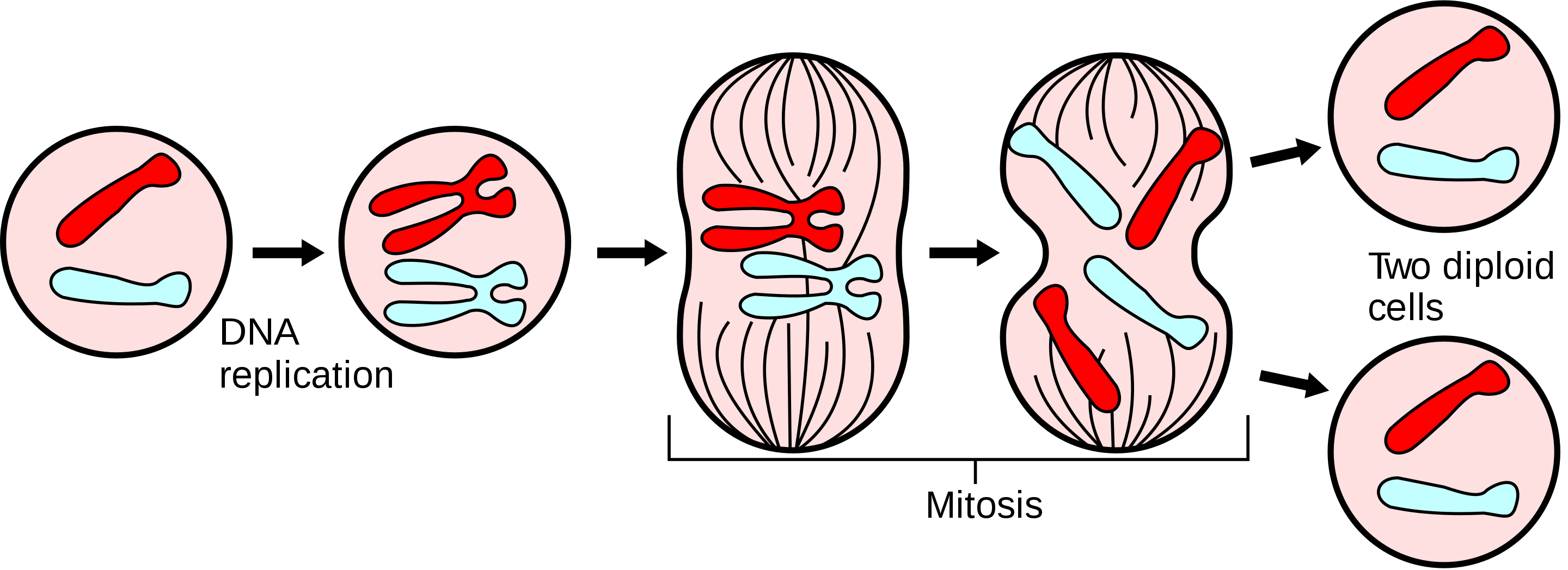
Have you ever wondered how your body forms new skin when you scrape or hurt yourself?🩹 Well, our cells replicate through a process called mitosis. Mitosis is a type of cell division where the mother cell creates two identical daughter cells.
As you grow, your cells undergo the process of mitosis to create more cells in order to grow limbs, hair, and so much more🌱! As you age, your body uses mitosis to replace cells that have grown old with new ones to keep you healthy💪. During mitosis, a single cell copies itself then splits in half. Each step in this process is vital to a successful replication.
The goal of mitosis is for the daughter cell to have a full, or diploid, set of chromosomes. If the daughter cell has too many or too few chromosomes the cell may malfunction. For example, if a cell has an extra chromosome it may lead to down syndrome or other conditions. Individuals with Down syndrome typically have three copies, or trisomy, of Chromosome 21, instead of the designated amount of two copies. Cancer can also result from an abnormal number of chromosomes.
Phases of Mitosis
Now that you know what mitosis is, let's take a look at the process your cells undergo to replicate! Mitosis has four basic stages: Prophase, Metaphase, Anaphase, and Telophase. Interphase occurs before mitosis and is where DNA and organelles are replicated, but for the purpose of this lesson we will focus on only mitosis.
When trying to remember the stages of mitosis think of the acronym PMAT, Peed on the MAT. This will help you remember the stages in the correct order.
Prophase
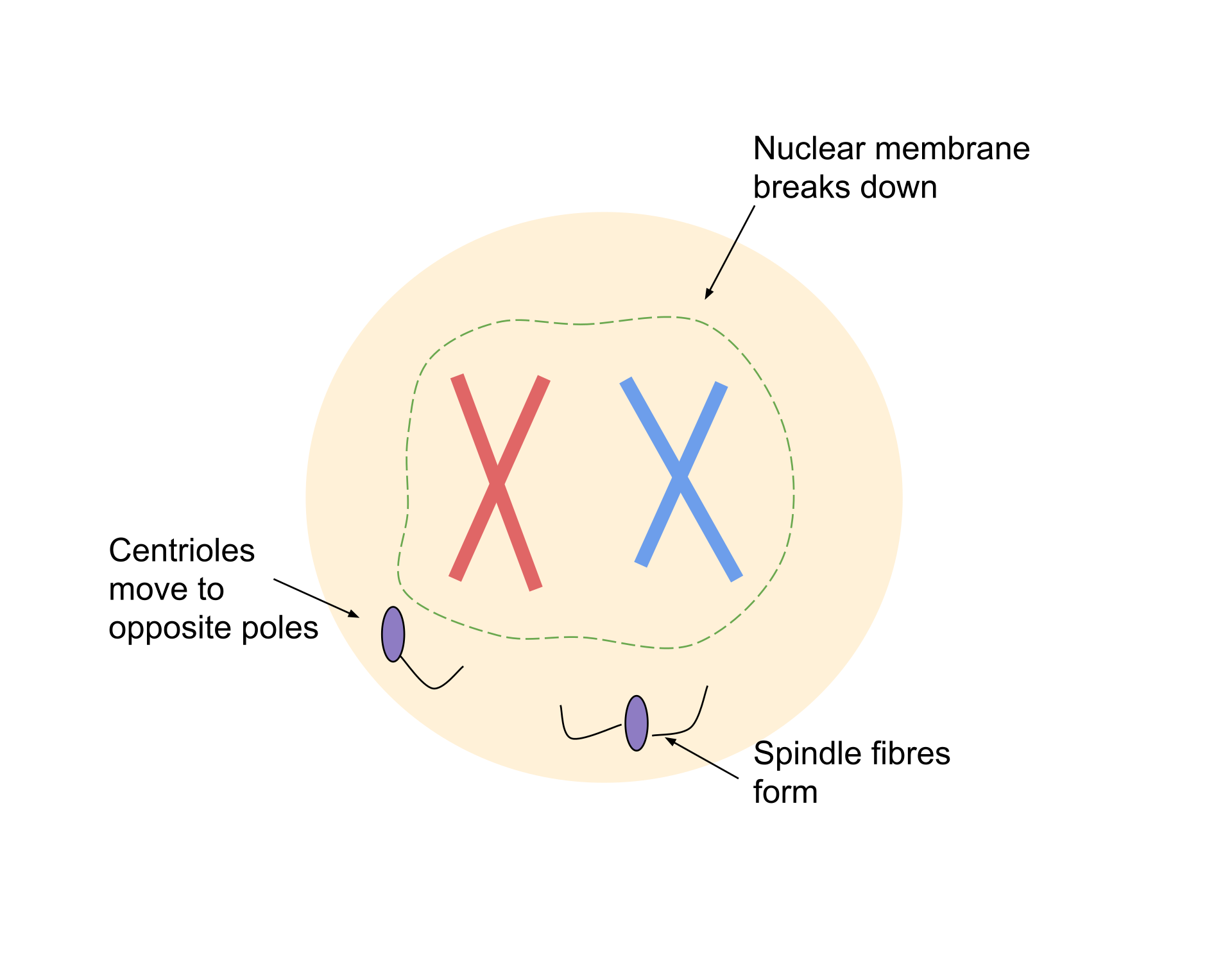
The first phase of mitosis is prophase, in which the mother cell prepares for cell division by doing the following:
- The mitotic spindle begins to form. Mitotic spindles act like a skeleton—they help keep everything organized and move around chromosomes. The mitotic spindle is composed of microtubules and centrosomes that help to move components of the cell to opposite poles.
- The nucleolus, which is the part of the nucleus where ribosomes are made, and the nuclear membrane, which is the membrane that protects the nucleus, disappear.
- The newly replicated DNA begins to condense into a compact form called chromatin, which further condenses into chromatin.
Metaphase
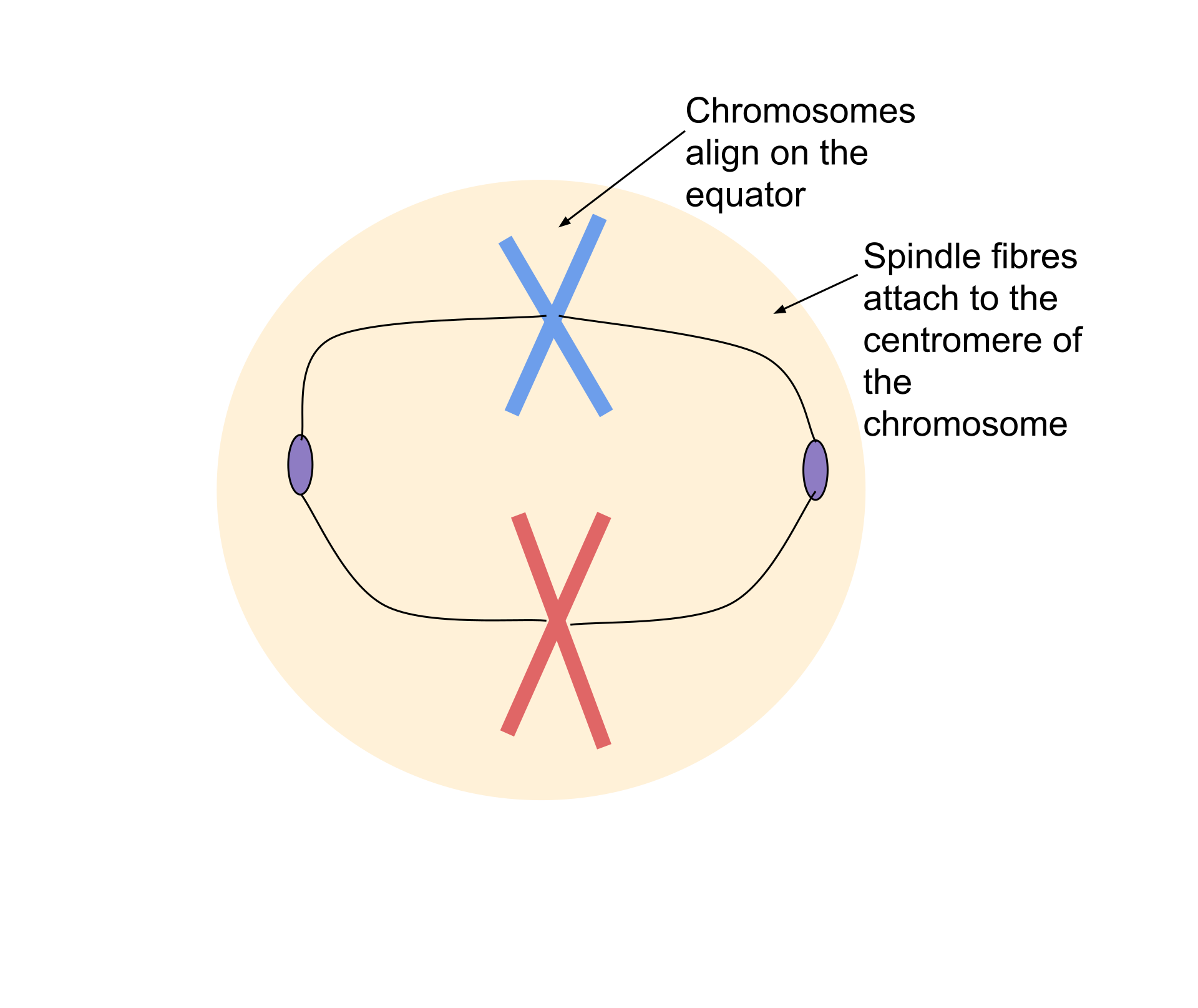
The second phase of mitosis is metaphase. In metaphase, the spindle fibers move the chromosomes to the middle of the cell so that the sister chromatids can be separated in the next phase. The sister chromatids are lined up on the metaphase plate in the center of the cell.
Before mitosis begins, DNA is replicated in interphase, which is part of the cell cycle. When a chromosome is replicated, each chromosome goes from having 1 chromatid to having 2 chromatids. Therefore, sister chromatids are a pair of chromosomes with the same genetic makeup.
Anaphase
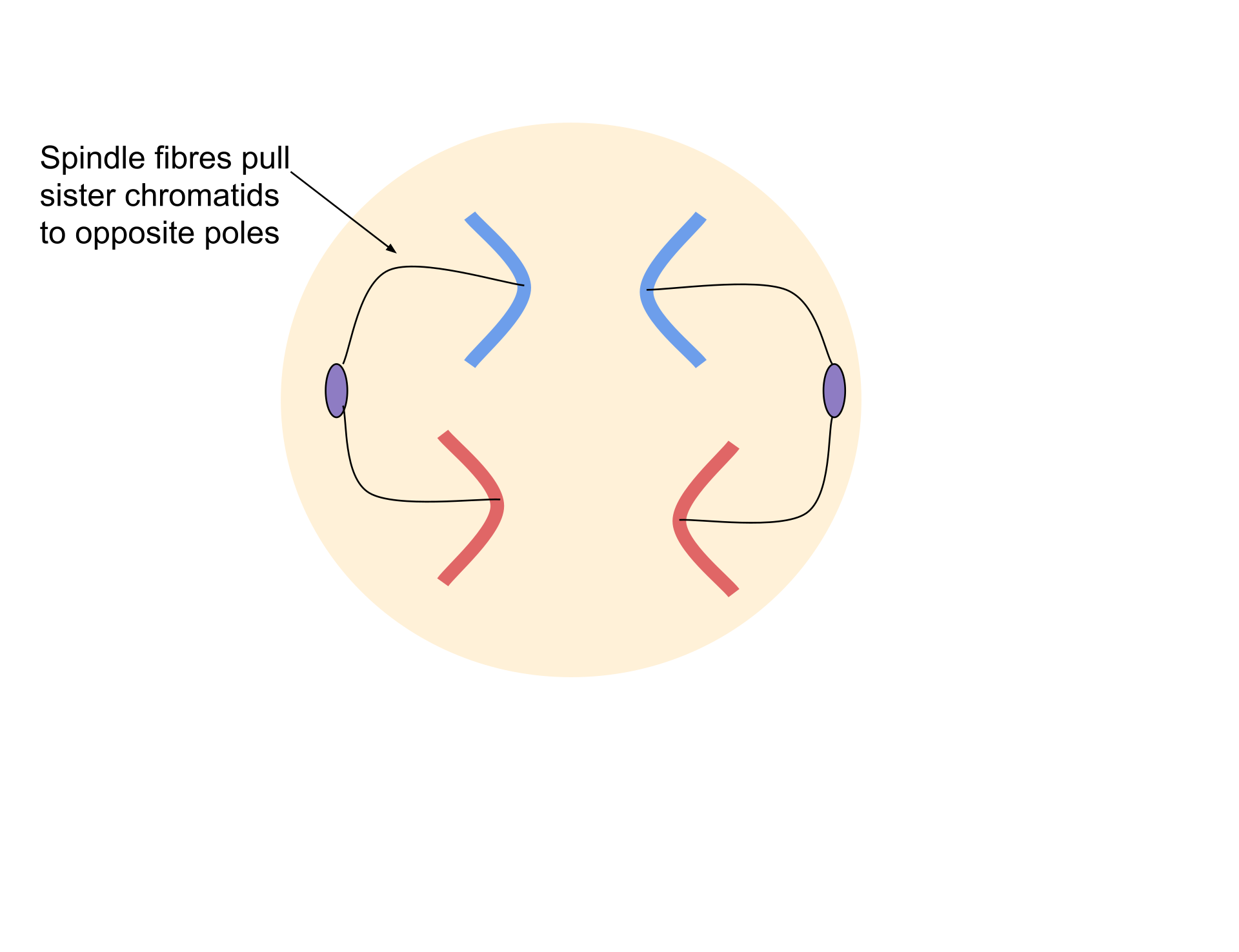
The third phase of mitosis is anaphase. In anaphase, the sister chromatids are separated and pushed to opposite poles of the cell by the spindle fibers. The protein, cohesin, which holds the sister chromatids together is removed and allows them to split apart. The opposite poles of the cell push each other away, further elongating the cell.
Telophase
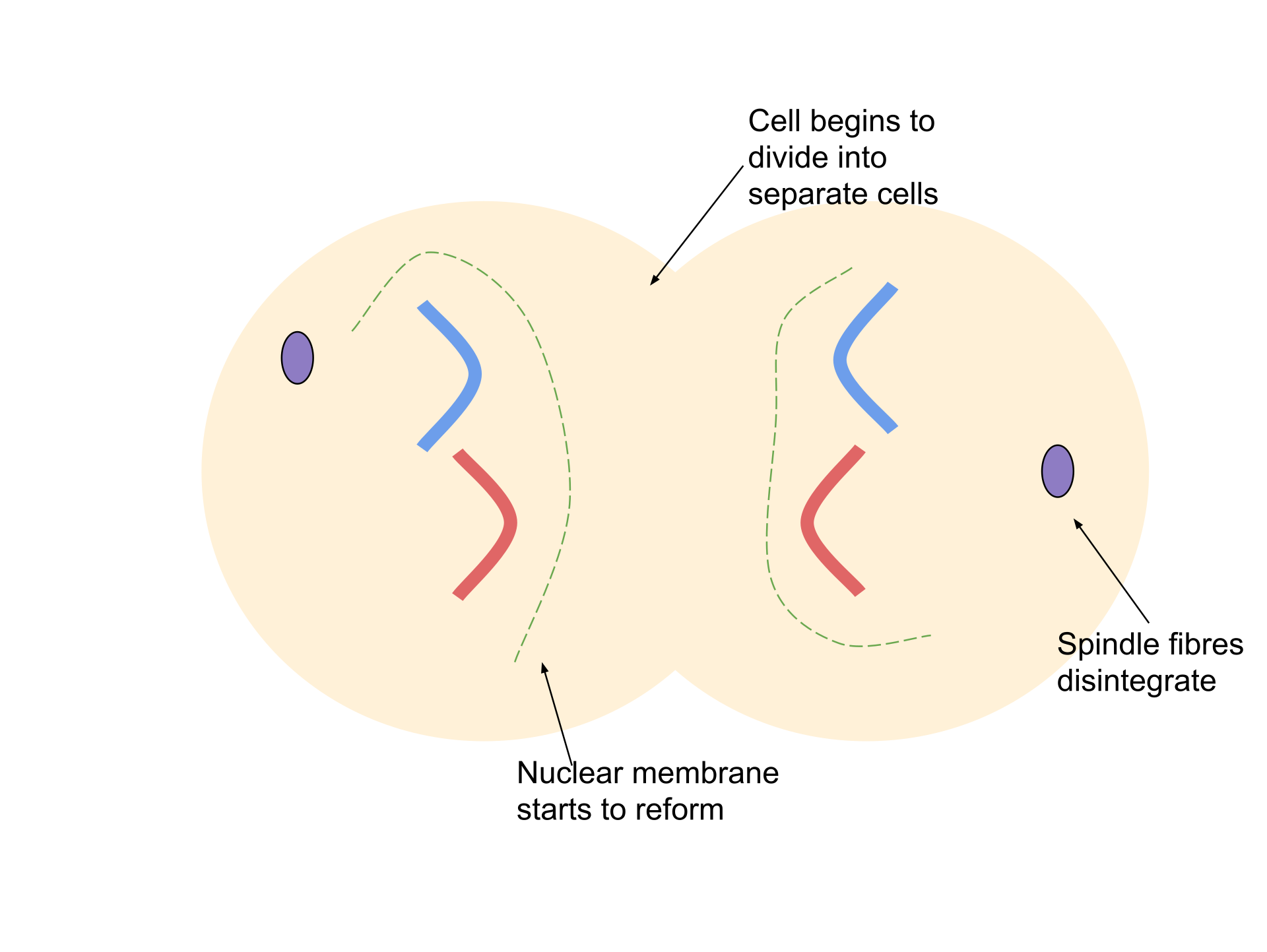
In telophase, the cell wraps up the process of mitosis. In telophase:
- The sister chromatids have reached opposite poles of the cell.
- The mitotic spindle is broken down.
- Two new nuclei and nuclear membranes form around each set of chromosomes.
- The chromosomes decondensed and return to their uncoiled form.
Cytokinesis
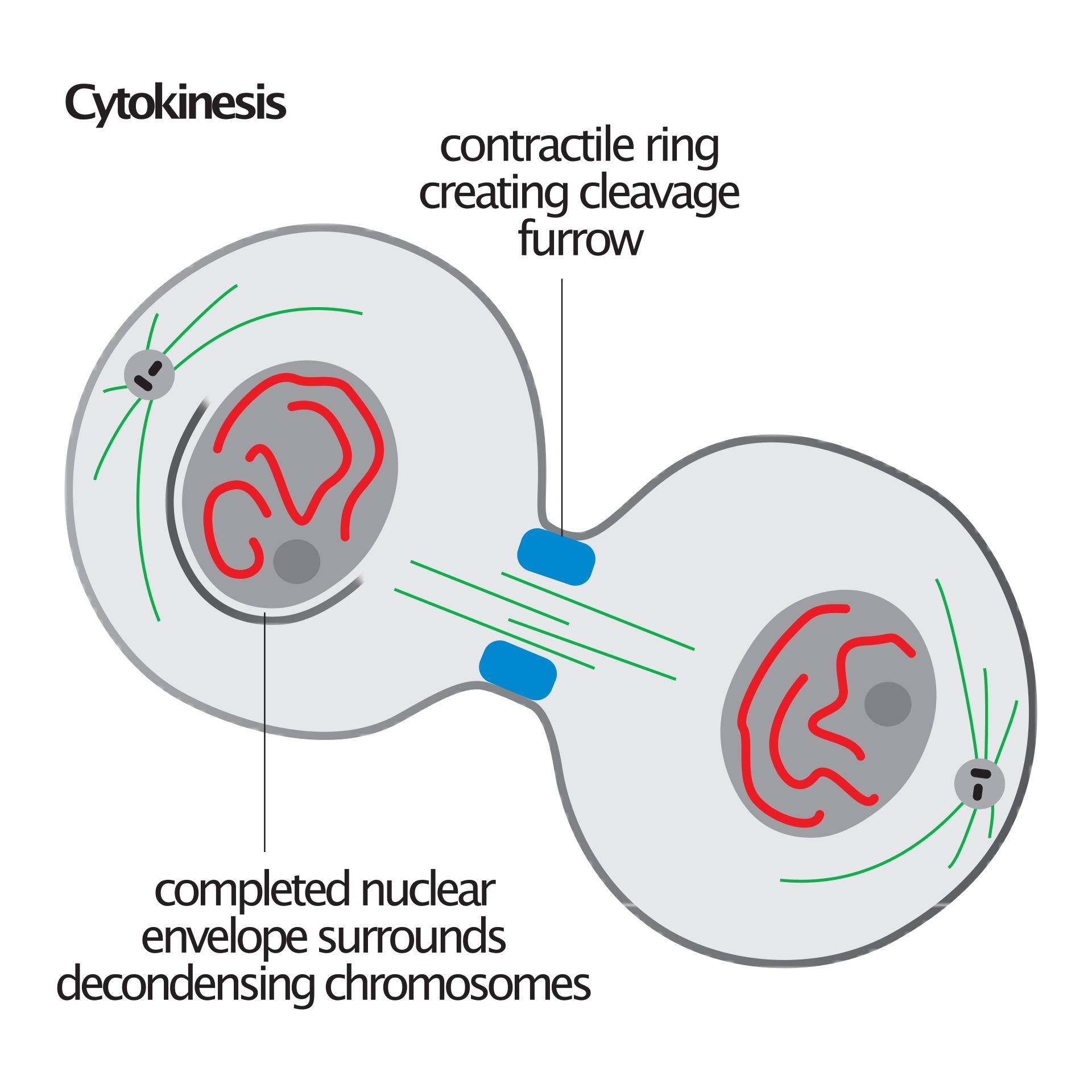
Cytokinesis overlaps with the last two phases of mitosis, anaphase and telophase. Cytokinesis finishes slightly after telophase but can start near anaphase.
In cytokinesis, the cytoplasm of the cell is split into two to form two daughter cells. A contractile band of actin filaments pinches the two cells apart. The crease is known as the cleavage furrow. Once the cleavage furrow has formed, the cytoplasm and cell membranes of the two daughter cells can separate.
By the end of cytokinesis, the original cell has successfully replicated itself and created two identical daughter cells. Each daughter cell now has its own set of organelles and a nucleus with a diploid set of chromosomes. These cells may undergo mitosis many more times.
The miraculous process of mitosis is occurring right now within your body, without you even knowing! Cool, right? 🤯
Connect with other students studying HS Biology with Hours!
Browse Study Guides By Unit
🔬Cells
⚙️Biological Processes
🧍Human Body Structures
👨👩👦Genetics
🐒Evolution

Fiveable
Resources
© 2023 Fiveable Inc. All rights reserved.